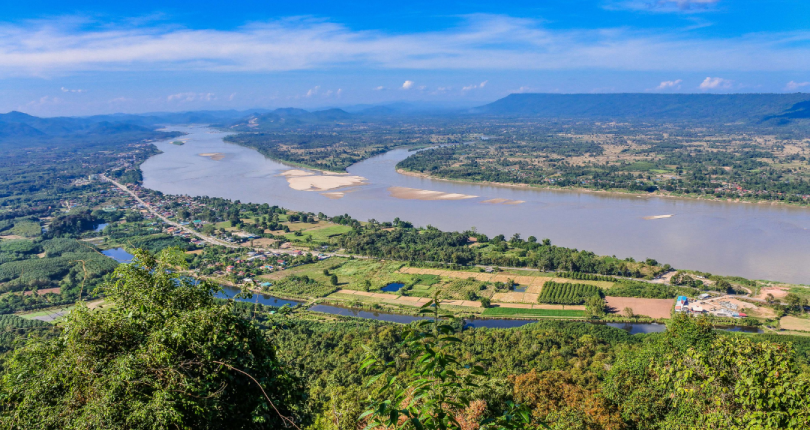SUMERNET PLUS: Partnerships for a long-term climate-resilient Mekong
SUMERNET PLUS will work towards linking evidence-based research with policymakers, practitioners, private sectors, young professionals, local communities, and vulnerable and marginalized groups across the region so that choices made for policies and practices will ensure socially inclusive, equitable, and sustainable development in the Mekong Region.
SUMERNET Plus: Partnerships for a Long-term Climate-Resilient Mekong through Just and Sustainable Transitions
For the last two decades, the Sustainable Mekong Research Network (SUMERNET), a transboundary programme in the Mekong Region, has brought together researchers, policymakers, and communities across borders to address some of the region’s most pressing environmental challenges.
In the just-concluded phase of work (2018- June 2025), SUMERNET 4 All, the network focused on reducing water insecurity.
In this new phase, SUMERNET PLUS (July 2025 to December 2029), the network will strive to improve policies and practices through scientifically robust, policy-relevant research and diverse and innovative means of outreach to support a just and sustainable transition for enhanced climate resilience, while taking into account gender equality, disability and social inclusion and human rights-based approach in the Mekong Region.
SUMERNET PLUS, in general, will have a regional coverage including six countries in the Mekong Region: Cambodia, China (specifically Yunnan Province and Guangxi Zhuang Autonomous Region), Lao PDR, Myanmar, Thailand, and Vietnam.
Objectives:
- Enhanced capacities and inclusive collaborations of Mekong’s knowledge producers, policy influencers, and young professionals are needed to deliver credible research, solution-oriented knowledge coproduction, policy engagement, and communications that respond to the differentiated needs of local communities, women and other marginalised groups, and local leaders in addressing climate resilience challenges.
- Improved policy development and implementation by policymakers and practitioners that are inclusive, gender-responsive and grounded in human rights-based approach to deliver equitable climate resilience solutions in the Mekong Region.
- Adoption of just, equitable and sustainable practices by the private sector and other stakeholders, based on inclusive evidence from solution-oriented knowledge co-production, will contribute to climate resilience in the Mekong Region.
Themes:
- Exploring nexus interactions and trade-offs in the Mekong Region. This theme focuses on existing dependencies, synergies, and trade-offs among key sectors (e.g., water, energy, agriculture, and forests) with the overall purpose of designing innovative solutions that address the existential threats of climate and unsustainable development using a transdisciplinary and inclusive approach.
- Building socio-ecological resilience across scales. Through practical and innovative partnerships (including public-private partnerships), this thematic area will maintain and enhance the resilience of socioecological systems to development and climate change.
- Just sustainable transitions. This thematic area will support the development of innovative, scalable solutions and evidence in key sectors (e.g., water, energy, agriculture, and forests) on a just sustainable transition for climate resilience. It will focus on defining the problem and solutions along with marginalized and vulnerable communities, women, youth, and local and Indigenous peoples.
For more details, please visit: https://www.sei.org/projects/sumernet-plus/

 Read more about SUMERNET
Read more about SUMERNET
